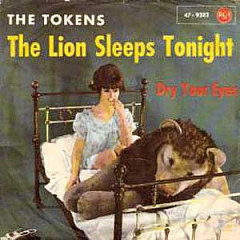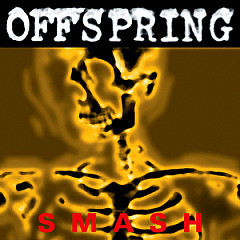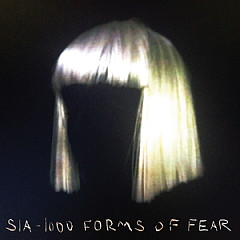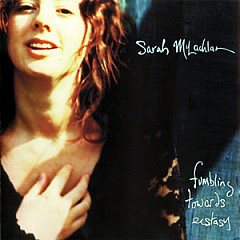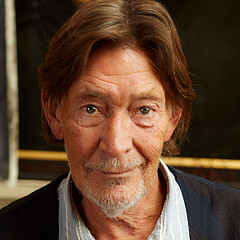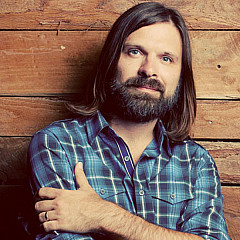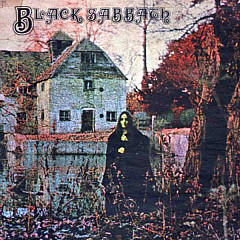In this song, Michael makes a forthright plea to his lover, making a case for why they should have sex. Among the reasons: It's natural, he's been waiting a long time and he's out of patience, everybody should do it, he loves her. Trying to get in a girl's pants is a common theme in rock and R&B music, but this is the first hit song that included the word "Sex" in the title, although Marvin Gaye knocked on the door with his 1982 hit "
Sexual Healing."
Some critics accused Michael of ripping off Prince with this song, but Prince's hits at the time were not sexual in nature, as radio stations stuck to his songs like "
Pop Life" and "Raspberry Beret" while songs like "Erotic City" and "
Darling Nikki" were either B-sides or album cuts. "I Want Your Sex" did generate some controversy and was banned by the BBC; after the initial shock of hearing DJs say the title, the song was accepted and had a long chart life. Over the next few years, the sexual floodgates opened up with hit songs titled "
I Wanna Sex You Up" and "
I Touch Myself" free to roam the airwaves. Prince was now free to release songs like "Cream" and "Gett Off" as singles.
This was Michael's first single as a solo artist. His clean-cut image as a member of Wham! may have given him the benefit of the doubt among program directors that would have rejected a song with this title from many other artists. For Michael, it immediately distinguished his solo work from Wham!, where he was known for hits like "
Wake Me Up Before You Go-Go."
This song caused a great deal of controversy when it was initially released, but was a rare song that became accepted as the artist explained himself. Amid concerns that the song was promoting promiscuity in the age of AIDS, the BBC restricted airplay to after 9 p.m., and many US radio stations refused to play it. Michael issued a statement in response, saying, "The media has divided love and sex incredibly. The emphasis of the AIDS campaign has been on safe sex, but the campaign has missed relationships. It's missed emotion. It's missed monogamy. 'I Want Your Sex' is about attaching lust to love, not just to strangers."
Once initial concerns about the song died down and the shock value of the title wore off, most Top 40 radio stations, as well as the BBC, warmed up to the song. The disclaimer (and a bit of editing to the original video) also appeased MTV, which at first refused to air the clip.
Michael didn't come out as gay until 1998, when he was arrested as part of a sting operation for performing a "lewd act." Most in the industry knew he was gay, but he resisted the label as he felt it wasn't the real issue. "To me it's always been about finding the right person," he told The Big Issue in 1996. "The only moral involved in sex is whether it's consenting or not. Anyway, who really cares whether I'm gay or straight? Do they think they've got a serious chance of shagging me or something?"
-
The album Faith hit #1 on the R&B charts, making Michael the first white solo artist to do so. Michael was very proud of this accomplishment, as acceptance in the black community was very important to him, as it was to many British singers before him, including Elton John and David Bowie. Michael's previous release was a duet with Aretha Franklin, but "I Knew You Were Waiting (For Me)" failed to infuse Michael with soul.
Michael made a strong statement with the video for this song, where he wrote the words "explore monogamy" on his reported girlfriend, a make-up artist named "Kathy Jeung." It was rare for a video to include a written message to complement a song, and the technique was very powerful, especially since few people could criticize the message. In retrospect, Michael's support for monogamy seems logical, as his homosexuality became public in the '90s. With AIDS spreading and many people still uneducated about the disease, it would have been very irresponsible for a gay man to advocate promiscuous sex.
The album version runs 9:17 and is listed as "I Want Your Sex (Parts I & II)." In the liner notes, the song is listed as the "Monogamy Mix," with the parts being "Rhythm 1 Lust" and "Rhythm 2 Brass In Love." On Part I, Michael played all of the instruments himself.
This was used in the movie Beverly Hills Cop II and appeared on the soundtrack.
In 2008, George Michael made an appearance on the TV show Eli Stone. He played himself in an episode where a high school girl is expelled for performing this song at an abstinence-only assembly. Michael went to trail to defend the girl, and said this on the witness stand: "It was inspired by a relationship. Like most of my work, it was autobiographical." He went on to add that the song advocated sexual responsibility, and questioned the practice of teaching abstinence as the only form of sex education.
Some of the unusual percussion sounds were generated with a very early sampling device called a Greengate DS3, which ran on an Apple II computer (back when Apple was a niche computer system for artists and geeks). With the Greengate, engineer Chris Porter was able to set up a sequence of distinctive beats and elements.
The rhythm track on this song was the result of a happy accident. Most of the sounds on the song were made using two synthesizers (a Roland Juno-106 and a Yamaha DX7) and a LinnDrum drum machine/sampler. The devices were connected to a MIDI unit which went a little off-kilter and started triggering some random sounds. "I went, 'Oh damn, I'll reset it,'" engineer Chris Porter said in Sound on Sound. "George said, 'Hang on a second, hang on a second! That sounds really good, doesn't it?' I said, 'It's a bit weird,' and he said, 'Yeah, but if we just take a bit out of here and a bit out of there we might be able to use it... ' We recorded a few bars of that odd squelching noise, and it then morphs into the song, at which point the bass becomes the bass part and just the Juno, LinnDrum and DX7 provide the overall soundscape."
This song was released as a 12" single with three sections:
Rhythm 1: Lust
Rhythm 2: Brass In Love
Rhythm 3: Last Request
The first section was the 7" single, which is what radio stations played. The full 12" version runs 13:12.
Andy Morahan, who also worked on "
Father Figure," "
Monkey" and "
Faith," directed the video. George Michael said: "It was a feeling that Andy and I were making really effective pop videos at a time when videos were still shamelessly naive, considering film was an accomplished medium."

